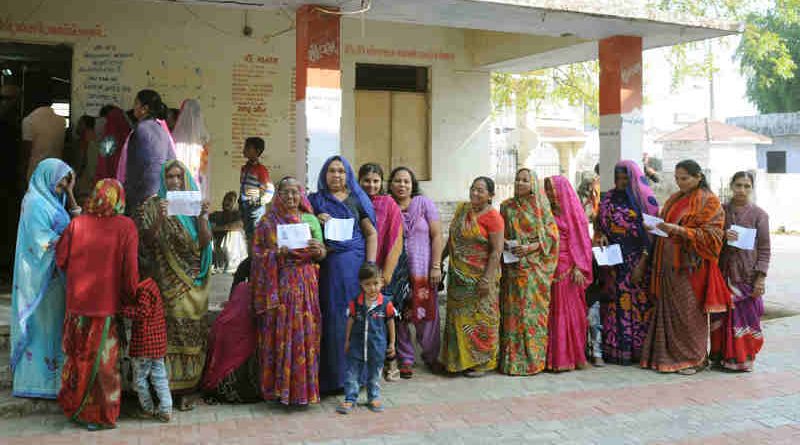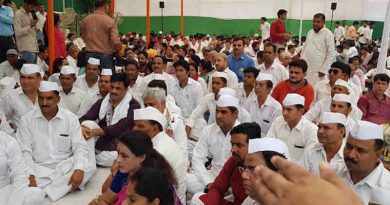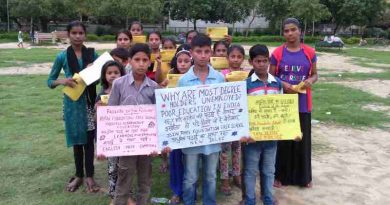Probe Committee Raises Doubts on EVMs and Fairness of Elections in India

Major opposition political parties in India have been repeatedly complaining about the vulnerability of EVMs.
By Rakesh Raman
The Citizens’ Commission on Elections (CCE), an independent group of investigators which examines election processes, has highlighted several flaws in the existing election system in India.
In its new report titled “An Inquiry into India’s Election System,” the group says that the Election Commission of India (ECI) has failed to perform its duties. The report raises concerns over the exclusion of marginalized groups from voters’ lists, the opacity of electoral bonds, and the power of big money in winning elections.
It says since the 2019 Lok Sabha election, “grave doubts” have been raised around the fairness of the polls and questioned if India was becoming an “electoral autocracy” where democracy is limited only to holding elections.
In fact, Sweden-based V-Dem Institute has already downgraded India’s status from “Electoral Democracy” to “Electoral Autocracy.” In its Democracy Report 2021, released in March 2021, V-Dem reveals that India has lost its status as an electoral democracy, as the government led by Prime Minister (PM) Narendra Modi is imposing various restrictions on multiple facets of democracy such as civil society and free speech.
The V-Dem report came close on the heels of the Freedom House research report “Freedom in the World 2021: Democracy under Siege” which has changed India’s status from “Free” to “Partly Free” due to the authoritarian actions of PM Modi and his Hindu nationalist government.
VULNERABILITY OF EVMs
According to an article of March 15 in The Wire news service, former Supreme Court judge Madan. B. Lokur, and former chief information commissioner Wajahat Habibullah, write in the foreword of the Commission’s report on Indian elections that it was the outcome of inputs from members of the CCE.
The CCE members included Justice Hari Paranthaman, Subhashis Banerjee, Pamela Philipose, Arun Kumar, and John Dayal, and the research for the report was done by Sanjiva Prasad, Paranjoy Guha Thakurta, Harsh Mander, V. Ramani, Sanjay Kumar, Jagdeep Chhokar, and Anjali Bhardwaj.
In its earlier report released in January, the CCE had discussed the possibility of manipulations and the vulnerability of electronic voting machines (EVMs) in Indian elections. Titled “Is the Indian EVM-VVPAT system fit for democratic elections,” the report highlighted the lack of transparency issue in EVMs and Voter Verifiable Paper Audit Trail (VVPAT).
Major opposition political parties in India have been repeatedly complaining about the vulnerability of EVMs, as they believe that Modi’s Bharatiya Janata Party (BJP) tampers with EVMs to win elections fraudulently. Since most opposition politicians in India are weak and uneducated, they raise only feeble objections against the dubious election results. But finally they accept the results of EVMs, and Modi’s BJP keeps controlling the power. In order to check the possibility of election frauds on EVMs, recently Maharashtra government had decided to introduce ballot papers in state elections.
DUBIOUS ROLE OF ELECTION COMMISSION
It is also being observed that when EVMs malfunction, they vote only in favor of Modi’s BJP which runs with Lotus election symbol. Obviously, BJP will always oppose paper ballots and any investigation into the misuse of EVMs. And it goes without saying that the Election Commission – which is a toothless outfit – will always obey Modi.
However, top tech experts believe that it is very easy to tamper with EVMs in India and change the election results fraudulently in favor of certain candidates.
In their study on EVMs in India, security researchers from India, the United States, and the Netherlands argue that “contrary to claims by Indian election authorities, these paperless electronic voting systems suffer from significant vulnerabilities.”
The researchers also have found that even brief access to the machines could allow dishonest election insiders or other criminals to alter election results. They have developed a video to demonstrate their claims.
Tech experts observe that besides other manipulations, the chip used in the EVMs is not of the OTP (One Time Programmable) category. That means, it can be programmed in each EVM to change the vote count in favor of a particular candidate.
WEAK OPPOSITION
The opposition parties in India have baselessly accepted EVMs integrated with Voter Verifiable Paper Audit Trail (VVPAT). But with this acceptance they have embarked upon a suicidal mission. They don’t understand that EVMs are vulnerable even with VVPAT.
Although VVPAT is supposed to provide a mechanism to audit the votes polled in an election, it is still not a foolproof solution because despite ECI’s claims VVPAT option may not be available with each EVM.
It is generally observed that the dishonest governments that control EVMs as well as the election authorities do not manipulate EVMs blatantly for the fear of being caught. They take the help of EVMs to change election results only in key polling stations where their candidates do not hope to win.
While there are repeated claims and counterclaims about the digital security of EVMs, the Indian government must invite independent international observers to supervise the functioning of EVMs in elections to ensure fairness in each election.
Also, the opposition parties must unite and demand all future elections on paper ballots. They must also demand the formation of a special all-party commission including international experts to probe the EVM-based voting frauds.
Earlier, the Association For Democratic Reforms (ADR) – a leading election research organization in India – had filed a petition in the Supreme Court regarding flaws in using EVMs in Indian elections.
The petition urged the court to direct the ECI to conduct actual and accurate reconciliation of (votes) data before the declaration of the final result of any election. It also appealed for an investigation into all such discrepancies in the data related to the 2019 Lok Sabha election results.
However, since courts and Election Commission work under the Modi government, they did not take any action to investigate the complaints against EVMs.
The opposition parties were vociferously opposing the use of EVMs before the election with allegations that BJP colluded with the ECI to tamper with the voting machines to win elections. But when the election results were declared in May 2019 and BJP won, all opposition parties went into a state of stony silence and did not challenge the results.
As the vulnerability of EVMs is clearly visible, it is believed that only those politicians and political parties will win future elections in India who know the art of stealing voter databases and hacking EVMs.
By Rakesh Raman, who is a national award-winning journalist and social activist. He is the founder of a humanitarian organization RMN Foundation which is working in diverse areas to help the disadvantaged and distressed people in the society.




